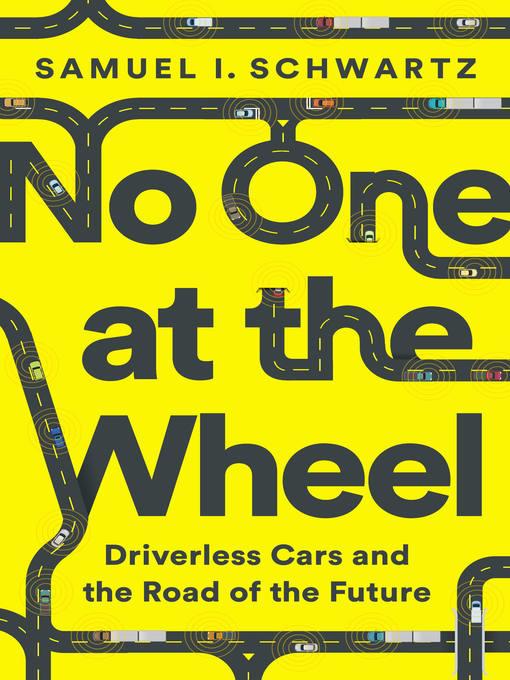
No One at the Wheel
Driverless Cars and the Road of the Future
کتاب های مرتبط
- اطلاعات
- نقد و بررسی
- دیدگاه کاربران
نقد و بررسی

Starred review from September 10, 2018
The bold opening prediction that autonomous vehicles, or AVs, will be the “most disruptive technology... since the advent of the motorcar” is amply and insightfully supported by Schwartz (Street Smart: The Rise of Cities and the Fall of Cars), former New York City traffic commissioner and the New York Daily News’s “Gridlock Sam” columnist. He clearly illuminates both the promise and the peril of driverless vehicles, which will affect “family and work life, business, politics, ethics, the environment, travel, health, and yes, our happiness.” Before the expected expansion of the AV industry in the coming decades into a “multitrillion-dollar business—bigger than Amazon and Walmart combined as they exist today,” Schwartz hopes that both policymakers and average citizens will think carefully; while AVs could make streets safer, they could also create an even more sedentary and unhealthy society. He contextualizes the current transportation revolution through a history of the rise and impact of motor vehicles, noting that commercial interests led to changes that defaulted in favor of the car and its driver, rather than the pedestrian, a history that he hopes won’t be repeated with AVs. This is an essential treatise on a technology whose development and regulation will have an impact on “the future health of people, economies, cities, and more.”

September 15, 2018
"In just a few years, all cars will be partially or fully autonomous." Are we hapless drivers ready?It's safe to say that few people on the planet know more about guiding vehicles from place to place than Schwartz, an engineer who served as New York City's traffic commissioner for years. In this book, which closely follows the city government's decision to rein in Uber and Lyft drivers, the author emerges as a not-entirely-uncritical advocate of autonomous vehicles, which promise to do all kinds of good things for crowded roadways, with a lot of ifs attached--e.g., if governments everywhere "ensure that people are privileged over cars, and that in the rush to innovate, unsafe or untested vehicles are not allowed to come on the market." The author notes that Uber employs "a lobbying troop that is larger than Walmart's" and spends millions on pressing its case. Given that he believes Uber and other disruptive transportation companies will continue to do so given the vast--potentially trillions of dollars--amount of money involved, cars may very well be privileged over people. For all that, Schwartz advocates moving forward with plans to introduce AVs into the transportation mix along with other steps to discourage individual ownership of vehicles, at least in cities--for, as he also notes, the vast number of vehicle trips are taken with single occupants going to places no more than a mile from home, trips that can easily be accommodated by other forms of transportation. The author contrasts some of the amazingly pedestrian-unfriendly cities of today (Athens, Greece, anyone?) with visions for a future where cars are kept at a safe distance from walkers and cyclists--but where cars, thus carefully limited and regulated, still hold a place in a vibrant suite of transportation options.An invigorating bit of future-trend prognosticating, generally positive, if warning direly of global gridlock if trends continue. Urban planners, architects, and transportation activists will definitely want to take note.
COPYRIGHT(2018) Kirkus Reviews, ALL RIGHTS RESERVED.

November 15, 2018
In his latest work, Schwartz (Street Smart: The Rise of Cities and the Fall of Cars) writes a practical, future-focused book on how automated vehicles will come to influence transportation. As the term automation has been applied in many ways to new technologies, such as self-driving cars, a helpful appendix on levels of automation helps to foreground the work and examine the degrees to which it can be achieved in the automotive field. To prove his points, Schwartz brings perspectives and lessons learned from his years as New York City's traffic commissioner. Chapters expand into several aspects of self-driving cars including infrastructure costs and designs, traffic and land use, business and health implications, and the varied ethical considerations of autonomous vehicles. What this work does best is provide timely and informed reporting on historical continuities with the current automated car debate. VERDICT For readers interested in learning more about technology and transportation policy, especially those contemplating the uses, drawbacks, and future possibilities of emerging technology on society writ large.--Jim Hahn, Univ. Lib., Univ. of Illinois, Urbana
Copyright 2018 Library Journal, LLC Used with permission.

























دیدگاه کاربران